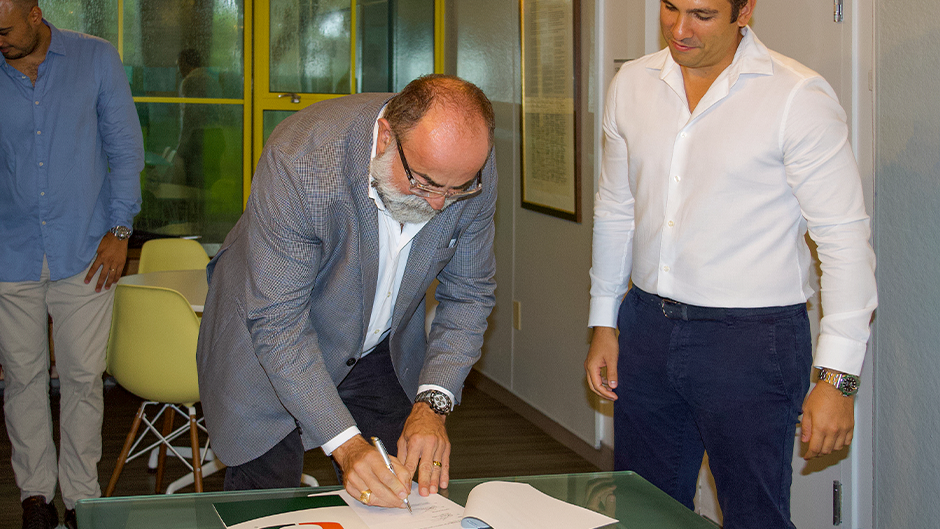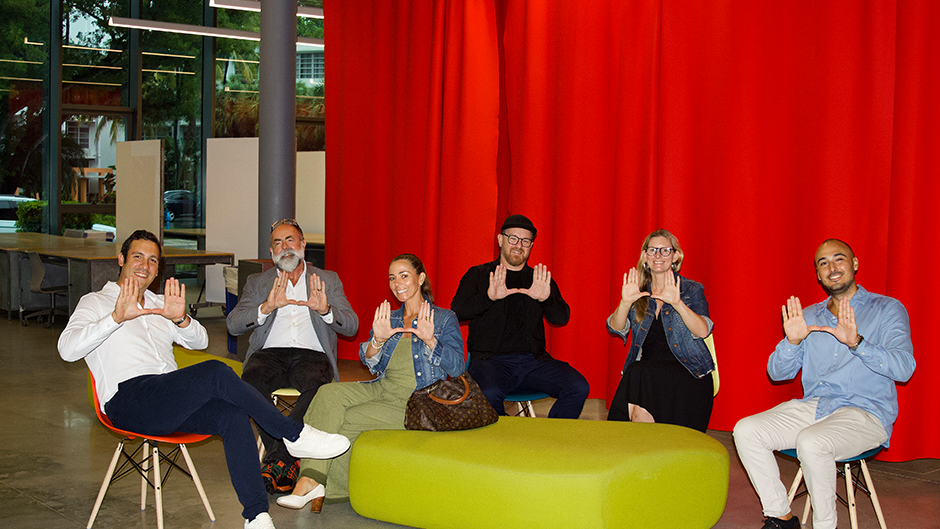The University of Miami School of Architecture’s Littoral Urbanism Lab (LU_Lab) is embarking on a new collaboration with RIVA Spain through an initiative led by Professors Shawna and Christopher Meyer. This collaboration promises to open new avenues of research and innovation while enriching the learning experience for students and faculty alike.
The roots of RIVA Spain stretch back to 1937 in Vigo, where the Iglesias family began their journey in the world of wood with a small workshop. Over eight decades later, this workshop has evolved into one of Europe’s most respected wood manufacturers. Every stage of RIVA’s production process is meticulously designed to advance the flooring industry while providing customers with products of the highest quality. In 2018, RIVA expanded its horizons under the leadership of CEO Borja Iglesias who brought RIVA to the United States with a clear mission: to continue the RIVA tradition with a renewed emphasis on innovation in a competitive market.
In a few weeks, the RIVA team will return from Spain with a collection of material samples, including sawdust. These samples will fuel a comprehensive investigation into their sourcing stream. The goal is to understand the intricacies of material origins and their journey through various stages of processing. RIVA will also share these materials with their connections in Florida for cross-testing, ensuring a thorough analysis from multiple perspectives.
As the academic year progresses, the LU_Lab will offer related courses for both undergraduate and graduate students. These courses will provide students with opportunities to engage with the research, focusing on material streams, supply chains, manufacturing processes, and product innovation. The curriculum is designed to project-based and immersive, including field trips to various wood mills around Florida. This direct exposure to the industry will enhance students' understanding and spark creative solutions to contemporary challenges.
The LU_Lab itself operates as both a knowledge-gathering center and a design-based research group, focused on the evolving relationship between urbanisation and the environment. The Lab embraces the responsibility of architecture to curate the constructed world, striving to create synergies between the built and natural environments. This mission is pursued through two main investigative approaches: interrogation and provocation.
The LU_Lab's projects are designed to engage collaborative and diverse teams that explore future design scenarios embedded in cultural, economic, social, and ecological urbanisms. Existing and future strategic alignments target innovation within industry, public and private organizations, and educational institutions. Through these collaborations and expanded architectural agency Lu_Lab seeks new techniques for built solutions in evolving wet-dry environments.

This newly minted relationship not only strengthens U-SoA’s curriculum but also sets the stage for advancement in architecture and urbanism. “RIVA USA’s investment in sustainable building material perfectly aligns with our focus on urban resilience, “ says Dean Rodolphe el-Khoury. “It clearly reinforces LU_Lab’s commitment to shaping a mutually reinforcing relationship between the built and natural worlds. Through this collaboration, the University of Miami School of Architecture, RIVA Spain, and the LU__Lab are poised to make significant contributions to the field, driven by curiosity, innovation, and a commitment to sustainability.

